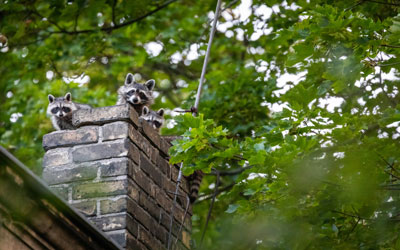 We experience very cold winter weather here in Utah. Just as we start to spend more time inside this time of year, pests are also looking to find shelter indoors. Unfortunately, this often means right inside your home. These pests are called overwintering pests and include squirrels, bats, rodents, raccoons, and more. Many of these pets will make their way into your attic to hunker down until the spring months return. Needless to say, no homeowner wants pests in their property, making it important to learn how to prevent overwintering pests in the first place. The team at Rentokil is here to share their top tips.
We experience very cold winter weather here in Utah. Just as we start to spend more time inside this time of year, pests are also looking to find shelter indoors. Unfortunately, this often means right inside your home. These pests are called overwintering pests and include squirrels, bats, rodents, raccoons, and more. Many of these pets will make their way into your attic to hunker down until the spring months return. Needless to say, no homeowner wants pests in their property, making it important to learn how to prevent overwintering pests in the first place. The team at Rentokil is here to share their top tips.
What Are the Most Common Overwintering Pests?
As temperatures drop in the fall and winter, pests, insects, and wild animals will begin to look for food, warmth, and shelter. The most common overwintering pests in our area are rodents (house mice and roof rats), squirrels, raccoons, and even bats! Once inside, these pests will nest, roost, and make a big mess. All of these pests or wild animals will gladly get cozy in your attic, which is why it’s crucial to learn how to seal your home off to them.
How to Prevent Overwintering Pest Problems
Every fall, prepare your home for the coming months by sealing off your home to pests. Here’s what to do:
- Secure your chimney with a chimney cap, and install wire mesh over any vents or roof openings.
- Make sure your trash cans are securely stored in your hard with tight-fitting lids to keep pests out
- Trim overhanging tree branches, overgrown bushes, and vines away from your home to limit roof access to pests.
- Organize all items and eliminate any clutter in the attic. Use plastic bins instead of cardboard boxes for storage
- Thoroughly inspect your attic inside and out, and seal any cracks or crevices with caulk or steel wool.
How to Get Pests Out of Your Attic
Wild animals or pests in your attic aren’t just a nuisance, they can be defensive and potentially dangerous as well. For this reason, it’s crucial to always enlist the help of a professional pest control expert such as Rentokil. Contact us today to see how we can help!
